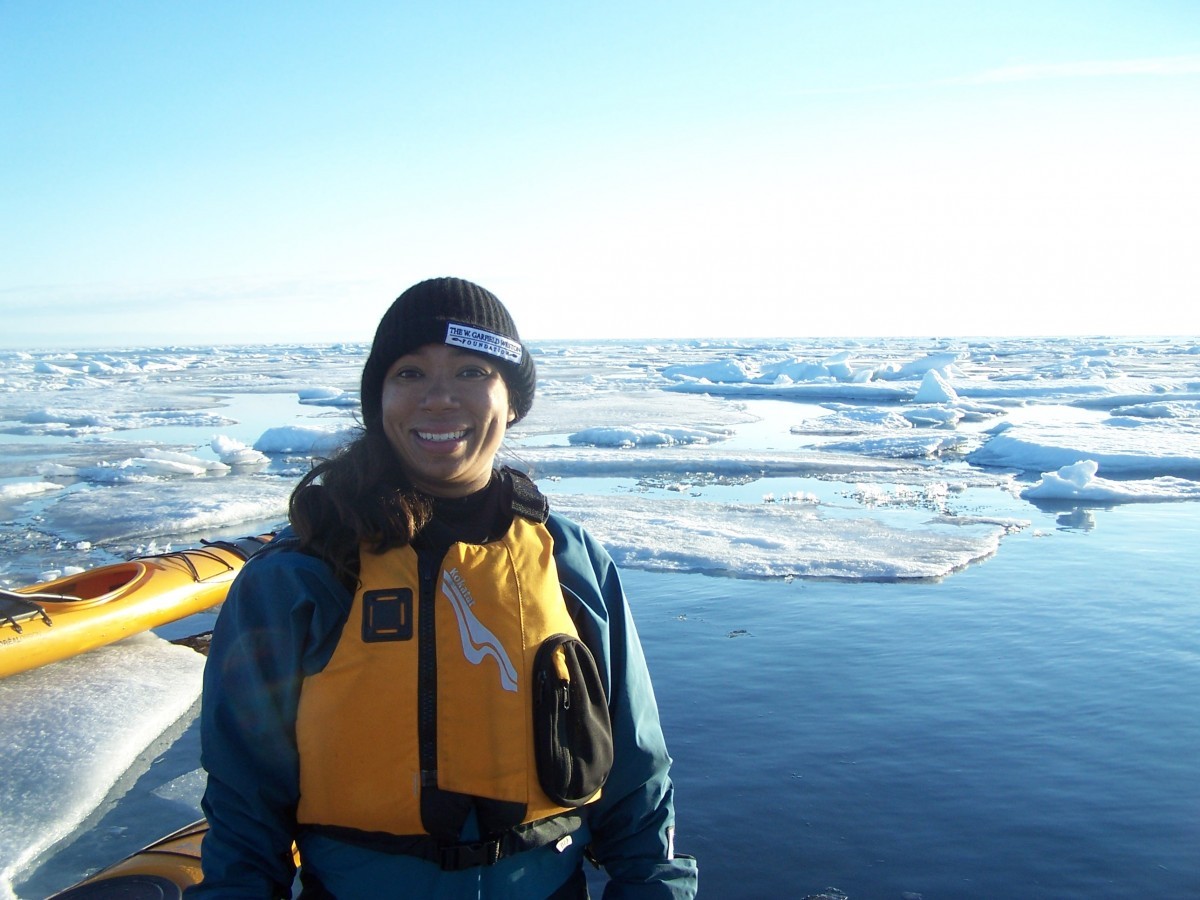
Emily Choy
Charting her way into history
U of M student was on board the expedition that discovered one of Sir John Franklin's lost ships
The day before the announcement that one of British explorer Sir John Franklin’s lost ships had been discovered, Emily Choy had already been tipped off on the monumental news. The doctoral student in biological sciences was on a flight to Edmonton following her journey on board the Akademik Sergey Vavilov – one of four vessels on the 2014 Victoria Strait expedition to locate the ships – when word started to get out.
“We saw the big players of the expedition from the Royal Canadian Geographical Society being rushed off the plane [and redirected] to Ottawa,” says Choy, a 2014 recipient of the W. Garfield Weston Award for Northern Research. “It was top secret, so we weren’t told what was going on, but everyone had their suspicions.”
Choy was one of five fellows selected by the Weston Foundation to join Parks Canada’s latest expedition to discover HMS Erebus and HMS Terror, both of which disappeared in 1845 during Franklin’s charting of the Northwest Passage. The day after her return flight, on Sept. 9, Canada and the world would be in on the secret; following over 165 years and countless attempts, one of the ships had been located.
Choy’s role on the ship included disseminating her research – which is focused on beluga whales and other marine life – as well as assisting the Royal Canadian Geographical Society in developing a curriculum on life in the Arctic. It was her expertise on Indigenous communities in the North, however, that shed light on the significance of the discovery.
“One of the major revelations was where the Franklin ship was found [south of the Victoria Strait] was where northern communities had always said it was … it was in Inuit oral history for the past 150 years,” says Choy, who has previously lived and collaborated with Inuvialuit people during her research on whale diets. “I hope that I was able to present – in terms of the science perspective – how important it is to work with communities up North.”
[rev_slider franklin]
Although the Akademik Sergey Vavilov didn’t make the discovery (that honour belongs to the CCGS Sir Wilfrid Laurier) Choy was able to witness first-hand much of the sonar work that contributed to the find. The Vavilov employed an autonomous underwater vehicle (AUV) to survey the area just north of where the wreckage was found, mapping uncharted locations along the way.
Despite the positive outcome, Choy says the expedition didn’t always proceed so smoothly. Sea ice caused an 11-day delay, leaving the team with under a week to carry out the search.
“The experience taught me how challenging the Arctic is to work in,” says Choy, drawing parallels between the 2014 expedition and the voyage that claimed the lives of Franklin and his crew. “Even with the high-end equipment, with all the support we had, it was still a challenging mission and we really had to work together.”
Choy is now settling back to life at the University of Manitoba, where she is continuing her research with the Department of Fisheries and Oceans at the Freshwater Institute. She has brought back the usual mementos and photographs, but she also returns with a more permanent souvenir: her name in the history books as a member of the expedition that solved one of Canada’s greatest mysteries.






